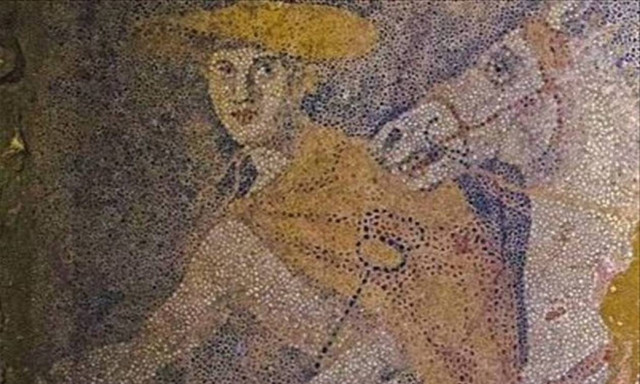Amphipolis monument was commissioned by Alexander the Great for Hephaestion
The Amphipolis tomb was commissioned and financed by Alexander the Great in honour of his beloved friend Hephaestion.

It was designed by architect Dinokrates or Stesikrates and was constructed at the end of the 4th century BC by Antigonus I Monophthalmus.
These are the conclusions of archaeologists and excavators of the monument that based on new finds decoded three inscriptions that were recently found at the area where the Lion of Amphipolis was found, a few kilometers south of the tomb.
The new evidence and finds were presented late Wednesday (30/9) at an Aristotle University of Thessaloniki in an event entitled "Searching Kasta Hill in Amphipolis 2012-2014", the first open event in which the chief archeologist at Amphipolis excavations Katerina Peristeri spoke.
"The secret of the construction of the Amphipolis monument lies on the top of the monument where a wooden pole was placed to support the Lion, said architect responsible for the excavation Michalis Lefantzis.
The great inscriptions (approximately 25cm height) that bore the 'signature' ANT (A 'signature' found in all Antigonides and here is attributed to Antigonus I Monophthalmus) and the complex of letters form the name "Hephaestion" meaning "I, Antigonus received construction material for the erection of a monument in honour of Hephaestion...)
During her speech, chief excavator Peristeri presented in detail the up to date finds and insisted on her initial view that it is a memorial constructed at the end of the 4th century BC.
The amphitheatre of the university ceremony hall was packed however only a few archaeologists and university professors attended the event.
The yard and the entrance of the ceremony hall were full of leaflets saying "Amphipolis carcass stinks of nationalism..." The text signed by the "autonomous historian-archaeologist group of Thessaloniki University" also said "archaeology in Greece always served national interests as one of the state's ideological mechanisms".









.jpg)














